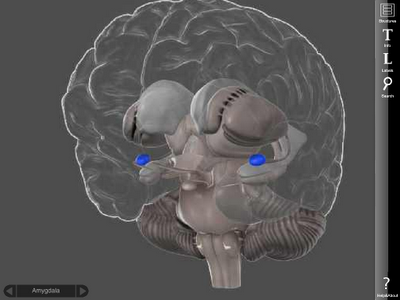A study from Oezuer Onur from the University of Bonn in Germany and his German colleagues provides some interesting new findings related to the brain in smokers.
In this study, smokers were compared to non-smokers on a face perception task. Smokers were scanned twice. One scan occurred quickly after smoking (satiety state) and a second scan occurred in the morning after a period of abstinence from nicotine overnight. In the second situation, smokers were reporting some withdrawal symptoms including urges to smoke a cigarette.
Smokers in the satiety state were identical to nonsmokers in their amygdala response to faces. However, smokers after a night of abstinence showed a significantly lower response to fearful faces. This effect was mapped to the amygdala and more specifically the basolateral region of the amygdala.
The authors note that their study supports a "fear-selective malfunction of the amygdala while craving nicotine versus while being satiated". The authors note this finding is likely due to one of two explanations:
- The changes reflect the consequences of addiction or
- The changes reflect a pre-existing (pre-smoking) vulnerability
The authors suggest that impaired fear reactivity in smokers might have clinical implications. Smokers may be less likely to respond to fear as a motivating factor in personal and public health efforts to quit smoking. They also report that the amygdala compensation when nicotine levels are high might contribute to positive re-inforcement through "psychoactive and procognitive effects".
Understanding the effect of smoking and acute nicotine withdrawal may provide better understanding of the effects of current smoking cessation drugs and also provide insight into new drug development.
Brain screen shot from 3D Brain showing the amygdala in blue from the author's files.
Onur OA, Patin A, Mihov Y, Buecher B, Stoffel-Wagner B, Schlaepfer TE, Walter H, Maier W, & Hurlemann R (2011). Overnight deprivation from smoking disrupts amygdala responses to fear. Human brain mapping PMID: 21618661

No comments:
Post a Comment